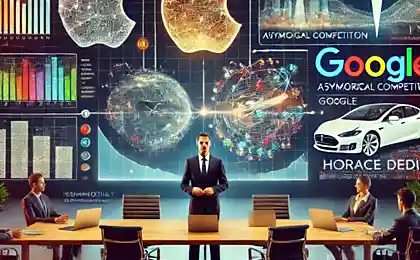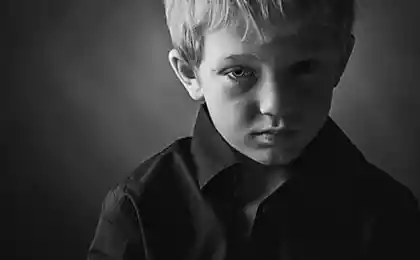625
Business psychology: how the world's image of the entrepreneur and what changes it is subject to
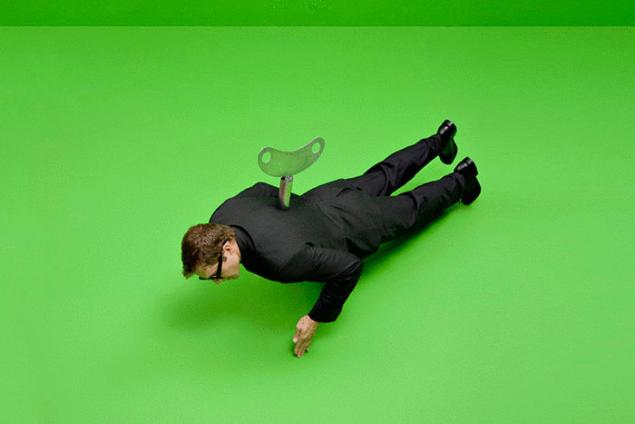
© Fredrik Broden
Contrary to popular belief, business psychology is not only the trainings of personal growth, efficient management and increase sales. T&P has learned from Professor Vladimir Serkin, than the image of the world of the entrepreneur differs from the rest as the arise collective memory and mindset of the employees and why is the phrase "honest businessman" still sounds unnatural to us.
Vladimir Serkin, Professor of organizational psychology faculty of social Sciences, higher school of Economics, lecturer of the program "Psychology in business"
— Most of your works are devoted to problems of General psychology: consciousness, psychosemantic, the image of the world, the neuroses and the script lazy life. The place occupied by these themes in the study of business psychology?
— Any applied branch of psychology is still psychology. And General psychological laws in business psychology also acting as, for example, age-related or engineering psychology, psychology of labor and all other. Seems a lot of the crafts training and "treninguri" held two-week courses and copying them. Such "experts" often do not know or understand the General psychological regularities of interaction, the real effects of various exercises and group forms of work violate professional ethics, and sometimes just hurt the people and their business. Psychological changes in the subtle, individual, and "stamp" them with some kind of one for all methods, and the profanity.
We teach students not to act blindly on one or two manuals, and to understand their General psychological bases, their advantages and disadvantages, psychological processes in group interaction. This makes students not only more successful but also more creative and responsible professionals. Sometimes our students at the beginning of training don't understand it and ask rather techniques-algorithms on the principle of "doing ...". But by the middle of the first year students all understand what the benefits and opportunities in the profession gives not a narrow skill, and it is considered a fundamental base. Only on this basis it is possible to constructively develop and implement needs of a specific organization or client research projects, problem solving, training, optimization, innovation and so on.
— Is there any specificity in the psychology of the entrepreneur?
Business, entrepreneurship is not only psychological but also cultural, economic, legal, and ethical concepts. At the seminars we don't go around their complexity. It is necessary to refer not only to knowledge but also to linguistic competence, intuition, feeling. For example, only in the Russian language, the sound of the phrase "honest salesman", the "honest businessman", "honest PR". Why not always naturally and what to do about it?
The semantic field of the concept of "honest" is connected with notions of "truth" and "honor" in Western psychology is partially lost. For example, the most common and well-known Western method of the study of values of sh do not have such values. For the Russian sample, this methodology simply does not apply (instruction offers work with values only from the list which has no key values). The phrase of the concept of "honest" with the concepts from other languages (business, PR) until the sound for us not too of course: language of long — term result of the collective thinking of the people, based on experience. "Unnatural" semantics of the phrase is speaking of apprehension and the severity of the public consciousness better sociological indicators. I'm not saying that is good or bad. Just these are the facts. The semantic field is already quite developed in the Russian language the word "seller" today is quite often includes the concept of "crook", "shameless", "weight wrong", "cheat" and so on. Therefore, the phrase "honest salesman" while semantically contradictory. However, the fact of the usefulness and development of this profession, no one denies.
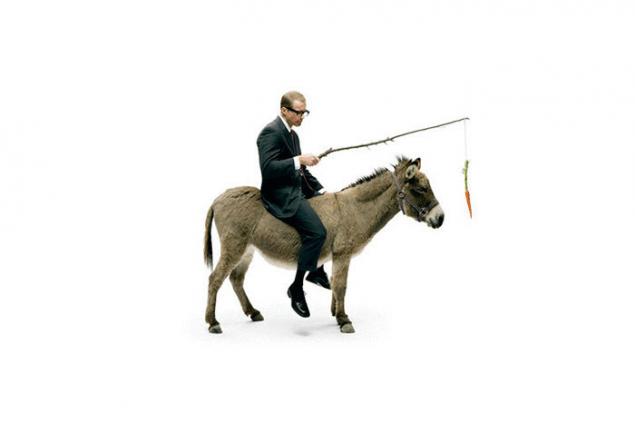
Semantic exercises, games — are just one example, but it shows how graduate students learn to be more sensitive to the nuances of speech (individual use of language) of the client, contracts, declarations. Deeper and less perceived by the speaker the level of analysis can be applied using, for example, the analysis of deep semantic roles, but it is the subject of a special long conversation.
— What distinguishes a professional specificity of an image of the world from the psychosemantics of the profession?
Semantics is the study of values and meanings, and psychosemantics is a psychological component values and meanings. The semantic layer is included in the image of the world, but he's not the only one. The most common model there is a nuclear layer, semantic and perceptual. Nuclear layer — the deepest and least changeable, is that we are formed in early childhood under the influence of upbringing, education, experience, it includes the values, meanings, motives. In the literature it is called climatisation complex. Then there is a rather fluid semantic layer, which is influenced by nuclear, because our experiences and values influence what values and meanings we attach to the situations and subjects. The outer layer is perceptive, perceive the world. Man differs from the animal that what it senses is a small part of its world image. If many animals in a specific situation is the whole world, the human situation is temporary (back to the past or forward into the future), a semantic, and, for example, the cosmogonic perspective.
— Studying business psychology, in addition to the problems of relationships, management, leadership, strategy development of the organization, which at all on hearing?
In the psychology of business has problems — the organization as a "mega-machines" (a term G. P. Shchedrovitsky). Here we are talking not only about corporate traditions and "missions", but also collective memory, collective thinking, and even consciousness, destiny, life stages of the organization and its products. Another layer of problems — systems, networks, groups (and sometimes schools) or community organizations, organizations to organizations (from V. Lefebvre — "the system drawn on the system"). For these formations even have a developed scientific terminology, scientist here have work to do.
Psychology has long noted the effect of joint activities: two people working together make much more than the sum of their work individually. I usually start the explanation of this phenomenon to students with this example: "two normal man can quickly take over the ends of the long log and put it on a high frame house. And one athlete (slightly more of each of the men) can't, even if you spend three times more time and effort". More such synergetic effect is manifested in good organization of work (the proper allocation of joint activities) of a large team. The joint activity involves a joint goal, i.e. a system subject activities. And this subject has systemic qualities, which none of the members of the group of people (such as water possesses qualities that neither hydrogen nor oxygen). Such a system "fate", memory, thinking, attention, consciousness and other processes, not human-like, yet called the collective "fate", thinking, memory, and so on. This was written by A. A. Volumes B. F. Lomov, A. L. Zhuravlev and other domestic authors. But it is clear that all this is anthropocentric reductionism (attributing the complex entity of human qualities), since we are dealing with have not investigated and not explained by systemic qualities of organizations.
— Is there a formulation of the psychological image of the human world, which is engaged in the business?
The problem is that the category of "way of the world" is fairly new, it was introduced in psychology in 1979, and the subject of when a professional lifestyle with way the world really began to develop somewhere in 2003.
As he wrote to the founder of the first in the USSR faculty of psychology of Moscow state University A. N. Leontiev: "the Activity constitutes". That is, it builds mental Constitution of man. If you are doing any activity long enough, whether you like it or not, you will have the professional skills and professional Outlook, and, alas, professional deformation. Fortunately, this is not the only thing you have, because normal people always act in several ways.
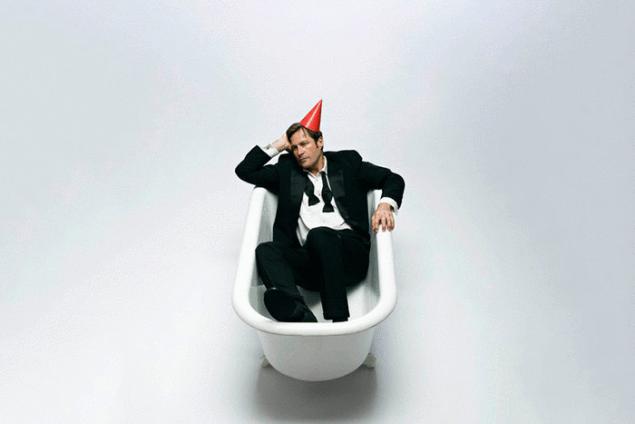
It is bad if people does not see anything beyond their professional activities. Have involved entrepreneurs is often the case — he perceives employees not as people but only as functions. Employees feel it and (action equals reaction) the same answer. Half of the teams that happens. And if someone from employees not properly performing their functions, even the head does not assign a task to understand the reasons. He prefers to replace it with another staff member-function, but it is also bound to be problems, because it is not a function, and people.
"Action equals reaction" is not only the third law of Newton, is the universal law of all interactions, formulated by Hermes Trismegistus. We just don't always see all ring interactions (and only a small arc shown). Often, but not always, the head, but faced with "passive", "disregard", "hostile" attitude of the staff, understands that you need to go to a psychologist-consultant, coach. Psychologist-a professional can help the owner to achieve the target comfort for themselves and those with whom he interacts, effectively, without losing face and human qualities.
Currently studying professional specificity of an image of the world and way of life of representatives of different professions, but particularly in the image world of the entrepreneur, while work was not, it is just planned for 2015/2016 academic years. But now we can talk about some specifics. Quite simply business are one and two target. In ordinary consciousness the first is aimed at receiving profit in the second profits are added to the "causing" of any use. In this sense, for example, in our country, making profit typically is either resources or resale. But in order to benefit, you need something others need (product or service) to produce. "Purely" useful things, such as protecting the environment, we have the business semantics of the word in ordinary consciousness are not considered.
— Who is it beneficial? Consumer, the world or yourself, too?
— If you mean social acceptance, self-realization, the business is not the best box, better self-realization in the works, if there are any abilities. From a man who organizes a business and facing different administrative and objective barriers that require certain business and volitional qualities. In a tough and not always correct competition you need to constantly think about the benefits, cost-effectiveness and their interests. To be successful in the modern Russian market, we need some insincerity and rapacity or something, because swarkestone could play into the hands of dishonest competitors. Need and communication skills, because, as far as I know entrepreneurs who work alone, all these people are wealthy, but will never rise above a certain ceiling. To grow, you need a team. Yes, for the owner is helpful and to be responsive, but everything should be in moderation. If you are too sensitive if you hard to demand something from a person? Therefore, there is a recommendation not to do business with friends and family because with them you will not be able to ask, and differences in the work goes in personal relationships.
— Are there any particular nuclear layer of the world image, which you said above, characteristic of the personality of the entrepreneur?
In a sense, we are all entrepreneurs, just a businessman making something specifically for the market. Nuclear layer is changed only in extreme situations, professional activity affects it a little, in contrast to the perceptual layer. My former graduate and undergraduate students doing research on different professions: teachers, professors, economists, doctors, miners, geologists, servicemen and came to the conclusion that the image of the world is not in the kernel and in the outer layers of semantics and perception. Therefore, we can assume that the businessman and the way the world will be different from other professions in these layers, nuclear layer, no specifics have not. But as long as such research was, we can only assume.
— How entrepreneurship is associated with neurosis lazy life?
— A concept we introduced in 1997. Now it is widely used. Neurosis lazy life (KNIFE) are rare, often so-called deferred scenario of living (GM). Especially the startups. When a person decides to organize a business project competently, he has a plan and is aware that its implementation will start a year (if things go very well) or in three to five years (which is likely). Throughout this period the stability he spends his energy, time, money, sometimes all he has, to the plan. Accordingly, he does not have the energy, time and money for good relationships with others, a certain standard of living, leisure time. He tells himself that it will be then, and that's fine. The vast majority of the population thinks: "Get a degree, to a life" or "'ll be Director a fresh start". Except for the small neurotic phenomena it does not lead, but at the same time, and imposes restrictions on external freedom, because sometimes it is impossible, for example, to Express their point of view or someone to fight. And according to the laws of psychology becomes a permanent feature of the internal.
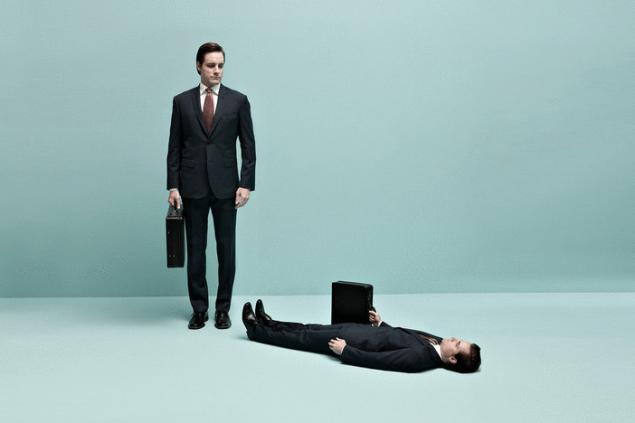
Each person can withstand a certain load of unresolved (and, the worst, unsolvable to "start real life") problems, their number individually. And when this burden exceeds the capacity, the person begins to fall apart, it becomes noticeable to others. Then we are talking about a KNIFE. However, even the majority of mortgage holders feel more or less steadily, even though they are limited to the terms (years of hard cyclic scenario) contractual life. Some are even proud of what they are strong-willed people. But the psychological changes are happening anyway, as in humans, there are two types of motivation. External — "I have to do something that I have my own circumstances", and internal — "I'm doing something to aspire to". And in such situations, external motivation begins with years prevail over domestic.
— What are these psychological changes?
— First of all, self-restraint, which is an internal property. Man does not notice and thinks that everything is fine. In this sense, the neurosis is still not developed. Any neurosis develops in the presence of external or internal obstacles, frustration important motivation. When the coolant is man himself frustrare the implementation of some important motives according to the scheme: "at first achieve, then life". People could work out their problems, but itself does not allow. That is, in the coolant normal person behaving like a neurotic, accumulating problems. We see that many entrepreneurs at some point realize their startapov break, become downshifters, are arranged in budget work, that is looking for stability, sacrificing autonomy. And often experience real relief, realizing years of outstanding motifs (starting with "enough sleep", "to do what you want" and so on). But it is they who have created the conditions themselves. And if you just ended the internal resources, this breakdown is a neurotic symptom. And it's not always a bad thing. Sometimes a person to go out of business and be realized in a different field.
— Can a man feel himself the prerequisites of failure?
— Most people feel them, but that doesn't mean they can control them. Man knows that his energy or patience runs out, but can not regulate their behavior. Here is the schema, the neurotic and the normal person is always a lot of problems, especially if the person is active and trying to implement your project. What is the project? A change of reality. And any reality resists change in the face of, for example, of officials and other circumstances. A normal person decides not all, but most of their problems. That is, the difference of the normal from the neurotic in that the first problems are piling up, he decides and wants, for example, about life in the country, where new challenges (as it so far seems) do not appear. The neurotic does not solve most of the problems, delays, looking for an explanation of why they don't need to decide now, give them other phrases, trying to forget. But the problem is not going away, piling up. Breakdowns are manifested in that person, for example, can not maintain normal relationships with others: he always carries a burden, and he had no strength for anything else, he agressiruet or hysteria, or his reaction actinica up to the "drop everything and cry."
— Does this mean that a person is engaged in something that is not his?
— It is very individual. For someone so someone has a reason- in the circumstances, but someone- the lack of strong-willed qualities, for example. In this psychology generalized recommendations or do not always work, or they need to be very finely "tune and adjust" for a particular person. Personal counseling is closer to art than to the methodical recommendations.
P. S. And remember, just changing your mind — together we change the world! ©
Source: theoryandpractice.ru
The New Steve Jobs. The rules of life Elon musk
The mystery of the shigir idol, a wooden sculpture, which is twice older than the Egyptian pyramids










